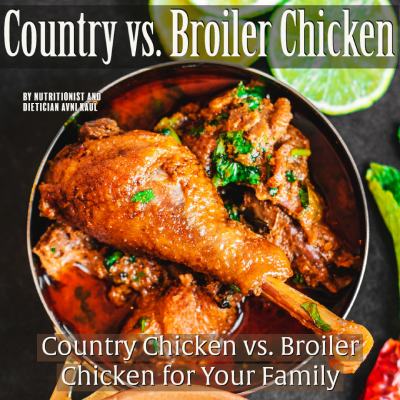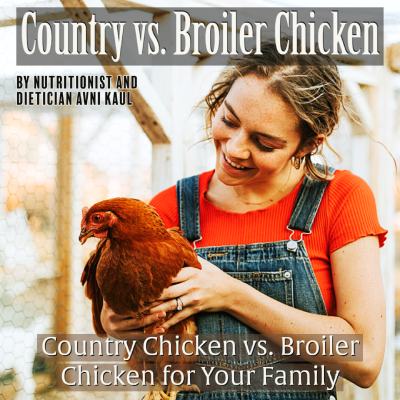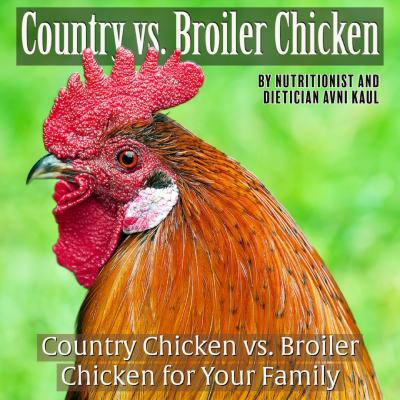India’s Top Dietician Avni Kaul Decoding the Healthier Choice
When it comes to choosing the healthiest option for your family’s diet, considering the nutritional value of the food you consume is paramount. Chicken is a popular protein source worldwide, but the debate between country chicken and broiler chicken often arises when discussing which is the healthier choice. In this article, Delhi’s leading weight loss Dietician and eminent nutritionist, Avni Kaul, reveals the nutrition facts of both country chicken and broiler chicken to help you make an informed decision that aligns with your family’s health goals.
Growth and Rearing Conditions of Country Chicken vs. Broiler Chicken:
Country Chicken – Country chicken, also known as free-range or backyard chicken, is raised in a natural environment. These chickens have access to open spaces, allowing them to move freely and engage in natural behaviors such as foraging for food. They have a varied diet, including grass, insects, and grains.
Broiler Chicken – Broiler chickens are raised in a controlled environment, typically confined to large-scale farms. They are bred to grow rapidly, reaching market weight within a short period. Broiler chickens are fed a specially formulated diet that consists of grains, soybean meal, and other supplements to promote rapid growth.
Nutritional Composition of Country Chicken vs. Broiler Chicken
1. Protein Content – Both country chicken and broiler chicken are excellent sources of high-quality protein. Protein is essential for tissue repair, muscle growth, and overall development.
- Country Chicken’s Protein Content – Country chicken generally has a leaner composition with slightly lower protein content compared to broiler chicken. On average, it provides approximately 20 grams of protein per 100 grams.
- Broiler Chicken’s Protein Content – Broiler chicken tends to have a higher protein content compared to country chicken. On average, it provides around 25 grams of protein per 100 grams.
2. Fat Content – The fat content in chicken can vary based on various factors such as diet, exercise, and cooking methods.
- Country Chicken’s fat content – Country chicken is typically leaner and contains less fat compared to broiler chicken. It generally provides around 3-5 grams of fat per 100 grams.
- Broiler Chicken’s fat content – Broiler chicken can have a slightly higher fat content compared to country chicken, primarily due to its rapid growth and higher feed intake. On average, it provides around 5-7 grams of fat per 100 grams.
3. Omega-3 Fatty Acids
- Country Chicken – Country chicken, due to its varied diet, including insects and grass, may have higher levels of omega-3 fatty acids compared to broiler chicken. Omega-3 fatty acids are beneficial for heart health, brain function, and inflammation reduction.
- Broiler Chicken – Broiler chicken typically has lower levels of omega-3 fatty acids compared to country chicken. The specialized diet of broiler chickens focused on rapid growth may not provide sufficient omega-3 fatty acids.
Both country chicken and broiler chicken have their own merits in terms of nutritional composition. Country chicken, with its natural upbringing and varied diet, may offer slightly higher levels of omega-3 fatty acids. On the other hand, broiler chicken generally provides higher protein content. However, it is essential to note that the overall healthiness of chicken consumption depends not only on the type of chicken but also on factors such as cooking methods, portion sizes, and overall dietary balance.
Eventually, choosing between country chicken and broiler chicken should consider your family’s health goals, preferences, and availability. Incorporating a diverse range of protein sources in your diet, including both country and broiler chicken, can contribute to a balanced and nutritious meal plan for your family. Consult a qualified nutritionist, Dietician in Delhi, or healthcare professional for personalized advice based on your specific dietary requirements.




